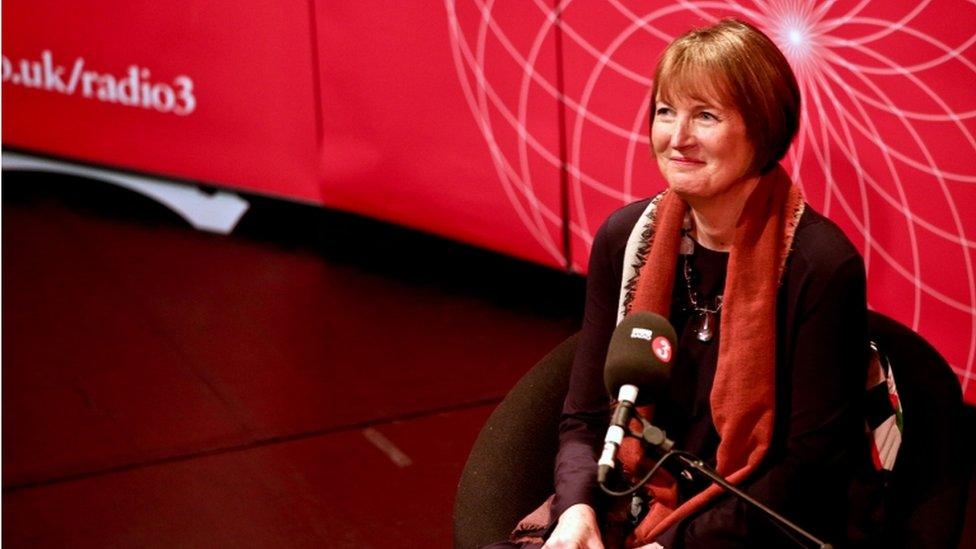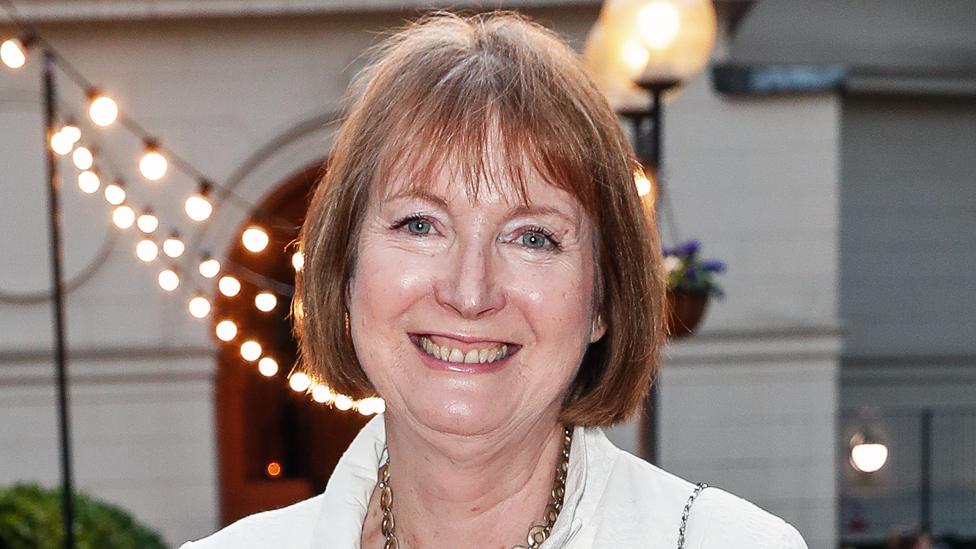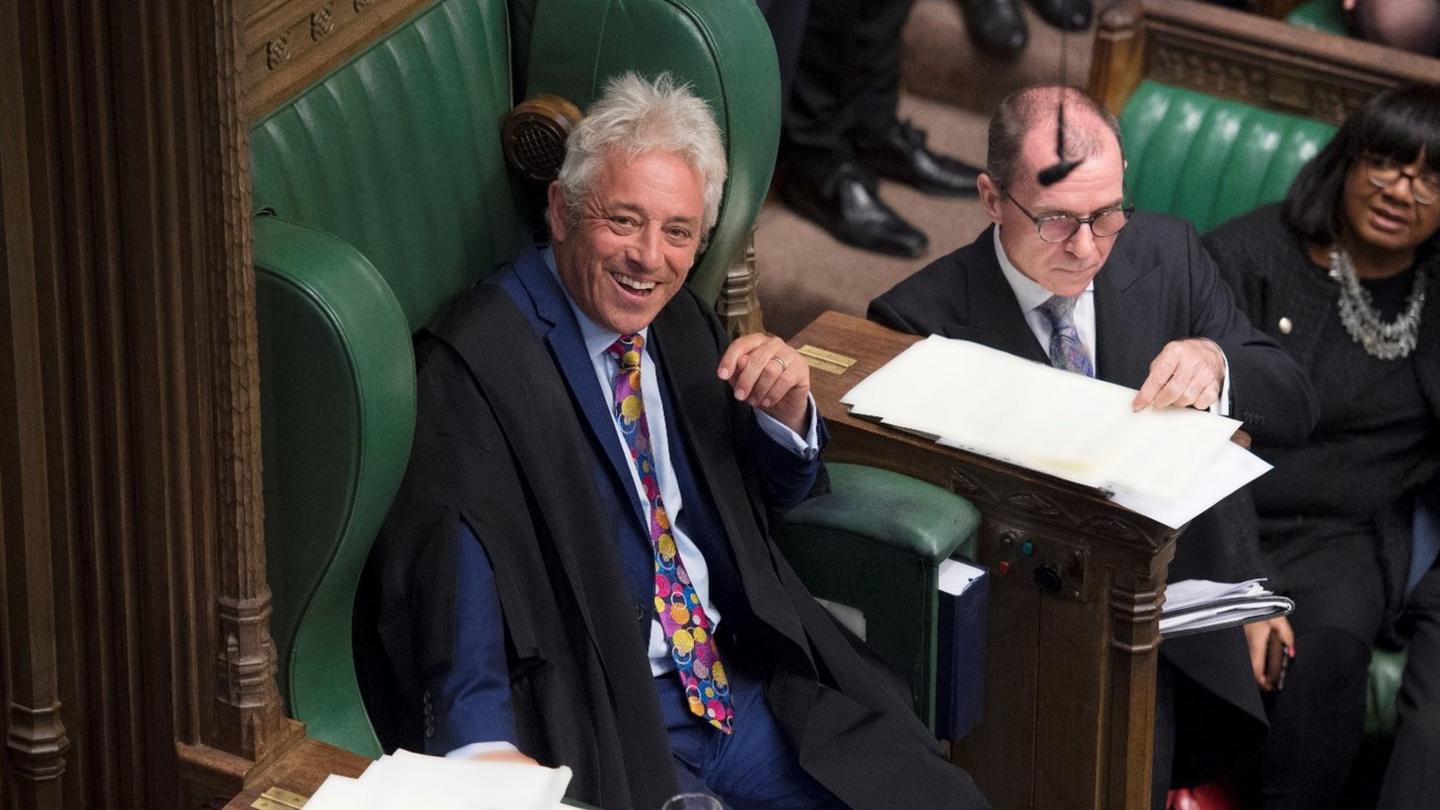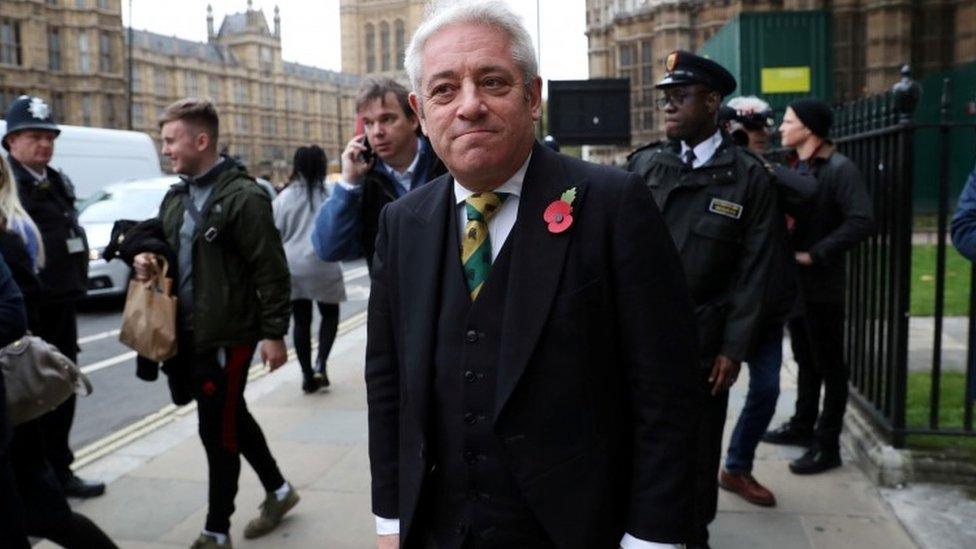Harman 'will not back down' from Commons Speaker race
- Published

Labour MP Harriet Harman says she will "not back down" in the race to replace John Bercow as Commons Speaker, despite objections from her local party.
Members in Camberwell and Peckham, London, voted to urge her to pull out, and hinted they could run a candidate against her at the next election.
But the ex-Labour deputy leader said her devotion to her constituency would be "unshakeable" if she became Speaker.
Mr Bercow has said he will stand down from the role by 31 October.
The House of Commons Speaker is in charge of keeping order during debates and ensuring the rules are observed.
Once an MP is elected Speaker they are expected to be impartial and can no longer take part in debates or put questions to ministers, although they can still do constituency work and hold surgery appointments.
Camberwell and Peckham Labour Party secretary Dave Lewis said: "As a party we lose a political voice in the House of Commons [if Ms Harman becomes Speaker] and as an electorate the people of Camberwell and Peckham lose a voice in the House of Commons."
He also said the motion was not about trying to deselect Ms Harman or fielding a rival candidate against her.
The motion urging Ms Harman to reconsider her candidacy was initially tied at 21 to 21 but a recount saw the motion passed by 26 to 22.
Responding to the vote, Ms Harman - who has been MP for Camberwell and Peckham since 1982 - said: "A confident and respected House of Commons representing every constituency in this country and holding the government to account is vital to our parliamentary democracy.
"The Speaker is at the heart of this - that's why I'm going for it."
She added the "overwhelming majority" of local members understood "the importance of a strong and fair Speaker and support me in this bid".
Allow X content?
This article contains content provided by X. We ask for your permission before anything is loaded, as they may be using cookies and other technologies. You may want to read X’s cookie policy, external and privacy policy, external before accepting. To view this content choose ‘accept and continue’.
Members also hinted they could run a candidate against Ms Harman in the next election, although Mr Lewis said he didn't think that would be "a good idea".
Speaking to ITV London, Labour leader Jeremy Corbyn said the local party was entitled "to express a point of view", adding that he did not "interfere in the running of local parties".
There is a tradition that parties do not stand against the Speaker. However, in September Business Secretary Andrea Leadsom said the Conservatives would break the convention by running against Mr Bercow in his Buckingham constituency, accusing him of ignoring "the government's right to govern".
As Mr Bercow announced on 9 September that he would be stepping down as an MP as well as a Speaker, the Conservatives will not now have to run against him.
John Bercow's most memorable moments as Speaker of the House
And in the 2010 election, Brexit Party leader Nigel Farage ran as a UKIP candidate against Mr Bercow.
Mr Bercow, who became Speaker in 2009, has faced criticism for failing to tackle allegations of bullying in the House of Commons, and from Brexiteers who questioned his impartiality on the EU.
He has also been accused of mistreating his own staff - allegations he denies.
However, he has received praise for strengthening the role of Parliament and making it easier for backbench MPs to hold the government to account.
Mr Bercow's announcement that he would step down triggered the race to become the new Speaker.
So far eight MPs have announced their candidacy for the job: Sir Henry Bellingham, Chris Bryant, Ms Harman, Meg Hillier, Sir Lindsay Hoyle, Eleanor Laing, Sir Edward Leigh and Shailesh Vara.
A new Speaker is elected through a secret ballot of all MPs.
- Published10 September 2019

- Published9 September 2019

- Published9 September 2019
